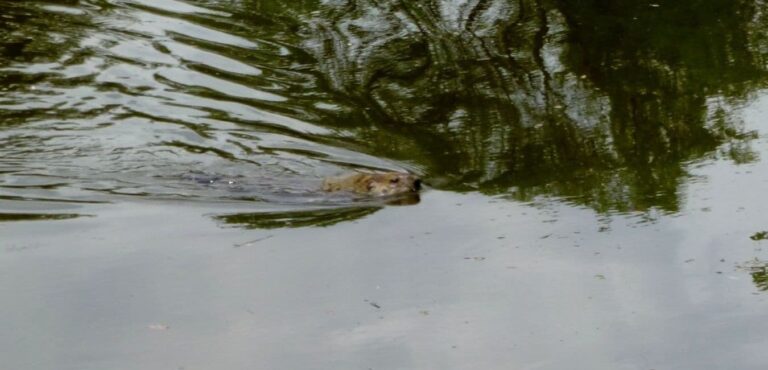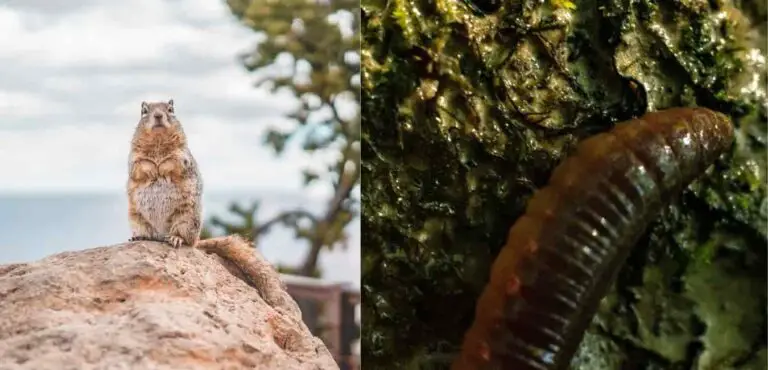Are Mice Dangerous

Mice are frequently regarded as pests that must be eradicated however, in this part, you will learn about the benefits of these tiny critters.
Mice have been around for a long time and can be found all over the planet. The oldest known fossil was unearthed in Germany 44 million years ago.
Mice are not as violent as rats, and they even have a natural predator: the owl! Mice can be found almost anywhere, but they prefer to live in areas that provide food and shelter close to one another, such as forests, farms, gardens, houses, and garages.
Are Mice a Threat?
Mice in the house are regarded as hazardous and destructive pests. Mice are considered bothersome pests because they carry and transmit viruses, germs, and other ailments. They are frequently found inflicting damage to personal property and are known for destroying commercial crops.
While house mice are not as detrimental to your health as deer mice, they can still spread diseases like hantavirus, salmonellosis, and listeria through their urine, droppings, saliva, and nesting materials.
Mice have strong front teeth that can break your skin if you are bitten. Their bite can cause a severe pinching feeling and blood to be drawn from the victim. Their bite usually results in a single puncture wound. If you’re handling a mouse, you’re more likely to get bitten.
Is it possible for a mouse to harm you?
Mice are pests that can pose a health risk to us. They are carriers and spreaders of viruses and bacteria.
Mice are little rodents that can be found all over the world and are most active at night. They contaminate food and wreak havoc on property. Mice are also known for spreading disease.
Mice droppings, urine, saliva, and hair may include pathogenic germs such as bacteria, viruses, or parasites that can make humans or animals sick. Hantavirus, salmonellosis, and listeria are just a few of the diseases that mice can spread.
If an animal with teeth is startled, feels threatened, or becomes very aroused, it will most likely attack you. Mice are no different.
When you’re dealing with a rodent infestation, it’s natural to be worried. A mouse bite is usually not too painful. The first crucial thing to figure out is what kind of rodent you’re dealing with in case it decides to chew on you. Various diseases are carried by different species of mice.
The Hantavirus, for example, is carried by deer mice, while domestic mice can spread Leptospirosis and Salmonellosis. Field mice, on the other hand, are less of a menace, particularly if you live in an industrial area. Simply put, you aren’t on the rodent’s radar. If you happen to meet a field mouse and it sinks its tiny fangs into your fingers, it’s simply because it’s scared and attempting to defend itself. If the creature is sick, the alternative option for its reaction is to kill it.
Hantavirus is spread to humans by contact with infected rodents’ urine or droppings. Salmonellosis is usually obtained by eating rodent feces or urine-contaminated contaminated contaminated contaminated contaminated contaminated foods. Listeriosis can be contracted by eating contaminated food or coming into close touch with infected mice.
For example, the deer mouse is a host to the Hantavirus, while the house one can carry the Leptospirosis and Salmonellosis disease. On the other hand, field mice don’t pose such a threat, especially if you are located in an industrial type of city. You are just not on the rodent’s radar. If you happen to meet a field mouse and it decides to sinks its little teeth into your hand, it’s only because the animal is terrified and is trying to defend itself. The other option for the creature’s reaction is if it’s sick.
Mice are rodents that can be found both in the wild and in people’s houses. Food, furniture, clothing, literature, and electrical cables are among the items they devour, contaminate, and destroy. Mice normally enter the home through holes or gaps that are large enough for them to fit through, which is why it’s critical to close these places before a mouse takes up residence in your home.
Is It Safe To Live In A Mice Infested House?
Cheese, chocolate, peanut butter, and oats are among the baits that mice find appealing. Because the mouse will drag the poison back to its nest and perish, poison should not be utilized.
Mice are notorious for causing personal property damage and crop economic ruin. Wires, cables, insulation in-home urine-contaminated contaminated urine-contaminated contaminated heating system pipes, and even money stashed in a wallet or purse are the most typical objects they gnaw through.
Mice can eat wires and cables, causing pricey devices to fail. Farmers are also at risk since these animals may swiftly grow up populations in cultivated fields, acting as a destructive diet.
Diseases Caused due to Contact with Mice!
Mice, like other rodents, carry a variety of disease-causing viruses that can infect humans and pets. They can spread these illnesses through direct contact with mice’s urine or saliva, contaminated food, and water, or bites and scratches. Here are five diseases that can be contracted by coming into contact with these filthy rodents:
1. Hantavirus Pulmonary Syndrome – Muscle pains, headaches, dizziness, and chills are all symptoms of this fatal respiratory disease. It is spread by rodent bites or eating food contaminated by an infected rodent. This condition can lead to organ failure if left untreated.
2. Leptospirosis – When the bodily fluid of an infected animal enters the mucus membrane of a person, the bacterial disease is contracted. High fever, headaches, chills, muscle aches, jaundice, red eyes, vomiting, diarrhea, rash, and abdominal pain are all symptoms of this illness. Kidney damage, respiratory distress, meningitis, and liver failure are all possible side effects.
3. Rat-Bite Fever – When a human is scratched or bitten by an infected house mouse, the disease can be transmitted to them. Fever, headache, vomiting, muscle pain, and a rash are some of the symptoms that can occur. These symptoms, however, may not appear for 3 weeks after contact with the mice, making diagnosis difficult.
4. Salmonellosis – Salmonellosis is a food-borne illness that can be contracted by drinking water or eating food that has been contaminated by mouse droppings. Although it is rarely fatal, it can cause serious complications in children and the elderly who have weakened immune systems.
5. Plague – When a person is bitten by the fleas of a mouse, plague can be contracted. The plague-causing pathogen can also be transmitted by eating raw meat and inhaling the infected host’s droplets. There are three types of bubonic disease: bubonic, septicemic, and pneumonic.
Are Mice Fearful Of Humans?
Mice are afraid of humans and will try to hide if they suspect that humans are present. Mice are little creatures, but that does not make them harmless. They can bite your fingers or toes if you don’t use gloves when picking them up. If you have an allergy, they can aggravate it.
Since we’ve been known to catch mice and kill them for food or sport, this impulse is presumably their natural way of protecting themselves from being caught and killed by humans.
Throughout the day, where do mice hide?
Mice are mostly nocturnal creatures, but they do venture out during the day to scavenge for food.
Mice are terrified of people, even though they may nest and form colonies in human homes. Humans are a potential threat to mice, thus they normally hide when they see them.
This may be why mouse bites are so uncommon.
Mice sleep in their nests, which are often built of soft materials, throughout the day. Shredded paper, cardboard boxes, insulation, or cotton might all be used as nesting materials.
Mice behave in a variety of ways throughout the day, depending on their position and surroundings. Mice in cities find a variety of safe hiding places throughout the day, including small holes in walls, beneath decks, and in alleyways. Mice in rural regions frequently hide behind heaps of stones or logs, but mice on fields typically seek shelter in a hole or crack.
A mouse’s hiding place throughout the day is determined by the sort of habitat in which it dwells.
Are Mice Harmful to Dogs?
While keeping mice out of your house is crucial, keeping them out of your dog is equally important. Mice are not natural prey for dogs, so there’s a good chance they’ll be inquisitive about the new critter in their home. They may be attacked or scratched by the dog if their curiosity causes them to reach out their paws for a little caressing.
Even if the mouse is not attacked, it could still transmit disease-causing bacteria to the dog’s bloodstream via bites or scratches on its skin. The threat isn’t just localized.
While trapping a mouse or rat is a natural activity for cats and dogs, consuming rodents might have negative implications for our animals. Intestinal worms and/or toxoplasmosis infection, as well as the likelihood of secondary rat bait poisoning, are all dangers.
Does Miurincontaminatedurine-contaminated Pose a Threat to Dogs?
Mice are a danger to dogs because they can bring infections and parasites that might hurt them. Mice can spread infections through their urine, feces, and saliva.
Mice are naturally preyed upon by dogs. They have acute hearing, vision, and olfactory senses, making them superb hunters. Dogs will usually pursue mice with vigor until they kill or capture the prey.






